Contributors, Authors and Speakers
↓ Contents of the Publications section
Society Journal
Articles Online
Podcasts and videos
Books published by the Society
Contributors
The following authors and speakers have contributed to our publications and symposia over the years.
Click on a name to find the links to their individual contributions.
Binyamin Abrahamov
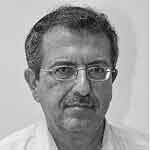
Articles by Binyamin Abrahamov
Ibn ‘Arabī ‘s Theory of Knowledge (Part One), JMIAS Vol 41, 2007
Ibn ‘Arabī’s Theory of Knowledge (Part Two), JMIAS Vol 42, 2007
Abandoning the Station (tark al-maqām) as Reflecting Ibn al-’Arabī’s Principle of Relativity, JMIAS Vol 47, 2010
Claude Addas

Articles by Claude Addas
The Experience and Doctrine of Love in Ibn Arabi
Expérience et doctrine de l’amour chez Ibn Arabi (French)
Le vaisseau de pierre (French)
The Paradox of the Duty of Perfection in the Doctrine of Ibn Arabi
The Muhammadian House – Ibn Arabi’s Concept of ahl al-bayt
Six Printed Editions of al-Futuhat al-Makkiyya – A Brief Survey | with Julian Cook
Samer Akkach

He was born and educated in Damascus before moving to Australia to complete his PhD at Sydney University. As an intellectual historian, Samer has devoted over twenty years to the study of Ibn 'Arabi’s mystical thought and intellectual legacy, and especially to their later revival by Abd al-Ghana al-Nabulusi.
His book Cosmology and Architecture in Premodern Islam: an Architectural Reading of Mystical Ideas (SUNY 2005), traces the influence of Ibn 'Arabi’s thought on the spatial sensibility of premodern Muslim architects. His further titles Abd al-Ghan al-Nabulusi: Islam and the Enlightenment (Oneworld 2007) and Letters of a Sufi Scholar: The Correspondence of Abd al-Ghana al-Nabulusi (Brill 2010) examine the intellectual contributions of this influential and prolific Sufi master who considered Ibn 'Arabi to be his spiritual master and source of inspiration.
Podcasts by Samer Akkach
Self-Knowledge and Self-Consciousness in Islamic Philosophy and Mysticism
Hamid Algar

His research interests center on Shi’ism in Iran and Sufism in the Persian and Persian-influenced world, with particular emphasis on the Naqshbandi order. His copious writings have been published in an array of languages additional to English, such as French, German, Russian, Italian, Bosnian, Turkish, Arabic, Persian, and Malay/Indonesian.
http://nes.berkeley.edu/Web_HamidAlgar/Algar.html [/]
Articles by Hamid Algar
Ian Almond

His specializations consist of Post-colonial theory, South Asian literature, representations of Islam and world literature. He is particularly known for his works on Islam. He is the author of five books, which have been translated into several languages, including Arabic, Turkish, Persian, Korean, Indonesian and Bosnian.
https://gufaculty360.georgetown.edu/s/contact/00336000014TX6WAAW/ian-almond [/]
Podcasts by Ian Almond
Elias Amidon

https://sufiway.org/about-us/pir-elias [/]
Podcasts by Elias Amidon
Crossing Borders: The Question of Human Belonging and Ibn Arabi’s Theory of Perpetual Transformation
Wahid Amin
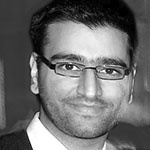
Podcasts by Wahid Amin
Ralph Austin
Dr. Ralph Austin taught Arabic and Islamic Studies at Durham University and is well-known for his translations of Ibn Arabi, above all Sufis of Andalusia and The Bezels of Wisdom, which have been acknowledged as entry-points to the study of Ibn 'Arabi by many contemporary scholars.
Articles by Ralph Austin
Aspects of Mystical Prayer in Ibn Arabi’s Thought
Image and Presence in the Thought of Ibn Arabi
The Lady Nizam – an Image of Love and Knowledge
On Knowing the Station of Love: Poems from the 78th Chapter of the Futuhat al-Makkiyya
Bakri Aladdin
Bakri Aladdin originates from Damascus; he studied under Henry Corbin in Paris and went on to write his doctoral thesis on the life, works and doctrine of al-Nabulusi, who has been the subject of his three main published works. He has since researched and taught on subjects related to tasawwuf ans Islamic Studies in France and Syria. As well as being the author of many journal articles and books, in 2004 he edited with Souad Hakim a commentary on a book by Ibn Arabi, the Sharh a-Mashahid al-Qudsiyya.
Articles by Bakri Aladdin
The Mystery of Destiny (sirr al-qadar) in Ibn Arabi and al-Qunawi
Oneness of Being (wahdat al-wujud) – The Term and the Doctrine
Paul Ballanfat

https://galatasaray.academia.edu/PaulBallanfat [/]
Articles by Paul Ballanfat
Reality and Image in the Tafsīr of Kubrā and Rāzī
Coleman Barks

https://www.poetryfoundation.org/poets/coleman-barks [/]
Podcasts by Coleman Barks
Rumi’s Community: Celebrating the Eternal Rumi with Poetry and Music
Salman Bashier

http://www.2018-2019.eurias-fp.eu/fellows/salman-bashier [/]
Podcasts and Videos by Salman Bashier
Carlos Berbil

Videos by Carlos Berbil
A Fresh Look at Ibn Sabʿīn: The Circular Scale of Transcendence and Mediation
Taoufiq Ben-Amor

Podcasts by Taoufiq Ben-Amor
The Poetry of Ibn Arabi – Recitations from the Tarjuman al-ashwaq
Omar Benaïssa

Articles by Omar Benaïssa
Pablo Beneito

He has been studying the works of Ibn Arabi since he chose to do his doctorate in Arabic philology at the Complutense University of Madrid, after which he spent nine years teaching at the University of Seville in the Department of Arab and Islamic Studies. He has also been a visiting professor at the Sorbonne in Paris (Ecole Pratique des Hauts Etudes), in Kyoto University (ASAFAS) and in Toledo (Escuela de Traductores). As a specialist in Sufi thought, he has given courses throughout the world, and helped organise more than 14 international conferences. He heads MIAS Latina [/], an independent organisation affiliated to the Ibn Arabi Society, for speakers of Spanish, Italian and Portuguese.
He has edited and translated (into Spanish) Ibn Arabi’s Mashahid al-asrar and Kashf al-ma’na. He is currently working on several of Ibn Arabi’s shorter treatises, including Kitab al-Abadilah.
Together with Stephen Hirtenstein he translated The Seven Days of the Heart - Ibn ʿArabi's Awrad al-usbu (Wird), and togther with Cecilia Twinch, Contemplation of the Holy Mysteries - Mashahid al-asrar al-qudsiyya.
Articles by Pablo Beneito
On the Divine Love of Beauty (PDF)
The Presence of Superlative Compassion
La Presencia De La Compasión Superlativa (Spanish)
The Servant of the Loving One – On the Adoption of the Character Traits of al-Wadud
The Time of Deeds and the Time of Spiritual Knowledge
The Prayer of Blessing [upon the Light of Muhammad] by Abd al-Aziz al-Mahdawi: Part 1, the Introduction; with Stephen Hirtenstein
The Prayer of Blessing [upon the Light of Muhammad] by Abd al-Aziz al-Mahdawi: Part 2, the Translation; with Stephen Hirtenstein
Podcasts and Videos by Pablo Beneito
Qurrat al-‘Ayn: the Maiden of the Ka‘ba
Ibn Arabi’s Vision of the Multiple Oneness of the Inner Human Kingdom
Past and Future of Knowledge: the Time of Gnosis in Ibn Arabi’s Writings
On the Spiritual Typologies in Ibn Arabi’s Kitab al-Abadilah
Sebastian Brock
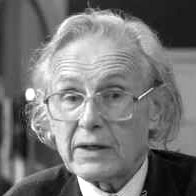
Podcasts by Sebastian Brock
Jane Carroll

Articles by Jane Carroll
Podcasts by Jane Carroll
Aaron Cass

Aaron studied Ibn Arabi and Rumi, amongst others, at the Beshara School in Scotland, where he was both a student and correlator.
Articles by Aaron Cass
Podcasts by Aaron Cass
Recitation of Ibn Arabi’s Poetry in Arabic and English
The Poetry of Ibn Arabi – Recitations from the Tarjuman al-ashwaq
Carlos Berbil Ceballos

Podcasts and Videos by Carlos Berbil Ceballos
Journeying from the Apparent to Absolute Being – Ibn Sabin and His Predecessors
William C. Chittick
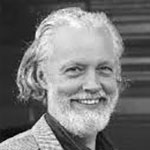
Born in Milford, Connecticut, Chittick finished his BA at the College of Wooster in Ohio, and then went on to complete a PhD in Persian literature at University of Tehran under the supervision of Seyyed Hossein Nasr in 1974. He taught comparative religion at Tehran’s Aryamehr Technical University and left Iran before the revolution. Chittick is currently Distinguished Professor in the Department of Asian and Asian American Studies at Stony Brook University. He was awarded the Guggenheim Fellowship for his academic contributions in 2014.
To pick out a few books from the 22 listed on his website, the following have been hugely important contributions to modern studies of Ibn 'Arabi: Imaginal Worlds: Ibn al-‛Arabī and the Problem of Religious Diversity (1994, translated into German, Indonesian, Persian, Spanish, Turkish); The Sufi Path of Knowledge: Ibn al-‛Arabī’s Metaphysics of Imagination (1989, translated into Persian, Turkish, and partially into Indonesian); The Self-Disclosure of God: Principles of Ibn al-‛Arabī’s Cosmology (1998); Ibn ‛Arabi: Heir to the Prophets (2005, translated into Albanian, Arabic, German, Persian, Turkish). The Sage Learning of Liu Zhi: Islamic Thought in Confucian Terms (2009, with Sachiko Murata and Tu Weiming);
https://www.williamcchittick.com/ [/]
Articles by William C. Chittick
Ibn Arabi’s own Summary of the Fusus (PDF)
The Chapter Headings of the Fusus (PDF)
Two Chapters from the Futuhat (PDF)
The Last Will and Testament of Sadr al-Din Qunawi – Translation
The Central Point – Qunawi’s Role in the School of Ibn Arabi
Jami on Divine Love and the Image of Wine
The Divine Roots of Human Love
Death and the Afterlife (PDF, Arabic)
The Anthropology of Compassion
The Religion of Love Revisited
Ibn Arabi: The Doorway to an Intellectual Tradition
Commentary on a Hadith by Sadr al-Din Qunawi
Podcasts by William C. Chittick
Ibn Arabi: The Doorway into an Intellectual Tradition
The Religion of Love Revisited
The Anthropology of Compassion in Ibn Arabi’s Futuhat
Interview of 2009 on the Radio Show “Science, Health and Healing”
Michel Chodkiewicz

Among his major books in translation are The Seal of the Saints: Prophethood and Sainthood in the Doctrine of Ibn Arabi (1986), Ibn Arabi: The Meccan Revelations (translation of selected chapters, 1988) and An Ocean Without Shore: Ibn Arabi, the Book, and the Law (1992).
Articles by Michel Chodkiewicz
The Diffusion of Ibn Arabi’s Doctrine
The Futuhat al-Makkiyya: Some Unresolved Enigmas
“We Will Show Them Our Signs…”
Miraj al-kalima – From the Risala Qushayriyya to the Futuhat al-Makkiyya
Dot Clark

Podcasts by Dot Clark
Self-Knowledge in the Practice of the Person-Centred Approach
Jane Clark

She has been studying Ibn Arabi for more than forty years, and is engaged in teaching courses and lecturing on his thought both in the UK (including Oxford University and Temenos Academy) and abroad (including Egypt, Australia and the USA), and in research and translation of the Akbarian heritage. She has a particular interest in the correlation of Ibn Arabi’s thought with contemporary issues. She organises the MIAS Young Writers Award.
Jane Clark was a co-founder of The Journal of Consciousness Studies and is currently editor of the Beshara Magazine [/]. She has presented many courses as part of the program of the University of Oxford Department for Continuing Education. A list of the freely available resources created or selected by her as a tutor can be found here:
https://open.conted.ox.ac.uk/people/jane-clark [/]
Articles by Jane Clark
Early Best-sellers in the Akbarian Tradition (PDF)
Towards a Biography of Sadruddin al-Qunawi
Fulfilling our Potential: Ibn Arabi’s Understanding of Man in a Contemporary Context
Universal Meanings in Ibn Arabi’s Fusus al-hikam: Some Comments on the Chapter of Moses
Some Notes on the Manuscript Veliyuddin 51 | with Denis McAuley
The Preface to the Tarjuman al-ashwaq (PDF)
Symbol and Creative Imagination | Event Report
Spiritual Realisation: Knowledge and Practice | Event Report
Podcasts and Videos by Jane Clark
Ibn ‘Arabi Counsels His Own Soul: Guidance and Deception in the Ruh al-Quds
Narrative and Mystical Perception: the two prefaces to Ibn Arabi’s Tarjuman al-ashwaq
“He Governs the World through Itself” – Ibn Arabi on Spiritual Causation
Sadr al-din al-Qunawi and His Relationship with Jalal al-din Rumi
“As If You Saw Him”; Vision and Best Action (ihsan) in Ibn Arabi’s Thought
Peter Coates

His book Ibn ʿArabi and Modern Thought - The history of taking metaphysics seriously was issued by Anqa Publishing.
Articles by Peter Coates
Podcasts by Peter Coates
Omer Colakoglu
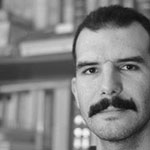
Podcasts by Omer Colakoglu
Julian Cook
Julian Cook holds a doctorate in Applied Mathematics from the University of Washington, Seattle. He has made a major contribution to the delivery and development of the online catalogue of Society's Archive Project, and developed unique methods for the comparison of manuscripts which have been the foundation for resolving longstanding editorial problems in the Diwan and other works of Ibn 'Arabi.
Articles by Julian Cook
Six Printed Editions of al-Futūḥāt al Makkīyah – A Brief Survey | with Claude Addas
The Great Dīwān and its offspring: The collection and dispersion of Ibn 'Arabī's poetry| with Stephen Hirtenstein
The library list of Ṣadr al-Dīn al-Qūnawī | with Stephen Hirtenstein
Vincent Cornell

His published works include over twenty articles and three books, including The Way of Abu Madyan (Cambridge: The Islamic Texts Society, 1996) and Realm of the Saint: Power and Authority in Moroccan Sufism (Austin, Texas: University of Texas Press, 1998).
Voices of Islam (Westport, Connecticut and London: Praeger, 2007, 5 volumes) is a comprehensive introduction to Islamic religion, thought, life and civilization includes chapters by 50 Muslim authors, including many of the premier scholars of Islamic Studies.
Dr. Cornell’s interests cover the entire spectrum of Islamic thought from Sufism to theology and Islamic law. He lived and worked in Morocco for nearly six years and has spent considerable time both teaching and doing research in Egypt, Tunisia, Malaysia, and Indonesia. He is currently working on projects on Islamic ethics and moral theology in conjunction with the Shalom Hartmann Institute in Jerusalem and the Elijah Interfaith Institute. For several years, he has been a key participant the Building Bridges Seminars hosted by the Archbishop of Canterbury.
http://mesas.emory.edu/home/people/faculty/cornell_vincent.html [/]
Articles by Vincent Cornell
Practical Sufism – An Akbarian Foundation for a Liberal Theology of Difference
Podcasts by Vincent Cornell
Building an Akbarian Tradition for the New Millenium: Toward a New Theology of Difference
Ann Coxon
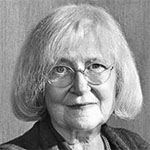
Podcasts by Ann Coxon
Caner Dagli

Born in the United States, Dagli is of Ciracassian descent and has done fieldwork in Turkey. He also spent a year working as special advisor for interfaith affairs to the Royal Hashemite Court of Jordan from 2006 to 2007. Among his works are the HarperCollins Study Quran (2015, edited with Seyyed Hossein Nasr, Maria Massi Dakake, Joseph E.B. Lumbard, and Mohammed Rustom) and The Ringstones of Wisdom (2004), a translation of Ibn 'Arabi's Fusus al-hikam .
Articles by Caner Dagli
The Time of Science and the Sufi Science of Time
Podcasts by Caner Dagli
Maria Dakake

https://religious.gmu.edu/people/mdakakem
Podcasts and Videos by Maria Dakake
David Darling
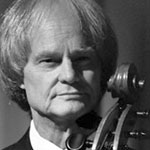
In 1986, Darling joined Young Audiences, an organisation that seeks to educate children about music and the arts through school programs. In the same year, he founded Music for People, which seeks to encourage self-expression through musical improvisation.
In May 2008, he became part of a collaboration of music teacher and performers offering a training program in holistic and intercultural approaches to healing with sound and music at the New York Open Center Sound and Music School.
Podcasts by David Darling
Ibn Arabi and Rumi: Teachings for the Modern World
Rumi’s Community: Celebrating the Eternal Rumi with Poetry and Music
Robert Darr

https://www.barakainstitute.org/tag/robert-darr/
Podcasts and Videos by Robert Darr
Waking to the Embrace: Applying Ibn Arabi’s Teachings on Embodiment
Maria De Cillis

Dr De Cillis completed her PhD studies at the School of Oriental and African Studies (SOAS), University of London in October 2010. Her PhD Thesis has been published with the title of Free Will and Predestination in Islamic Thought: Theoretical Compromises in the Works of Avicenna, al-Ghazali and Ibn Arabi (2014). De Cillis has co-edited Shiʿi Esotericism: Its Roots and Developments (2016) as well as writing a number of journal articles and encyclopaedia entries. She has taught on the Qurʾan at the School of Oriental and African Studies (SOAS) and on medieval Islamic philosophy and speculative theology at and at Birkbeck College, University of London. She continues to lecture on Kalam and Falsafa at The Institute of Ismaili Studies. Her research interests include Islamic metaphysics, Sufism, Shiʿi esotericism and Ismaili philosophy.
Podcasts and Videos by Maria De Cillis
Ibn Arabi on Free Will and Predestination: Between Philosophy and Mysticism
Suleyman Derin

https://ilahiyat.marmara.edu.tr/bolumler/temel-islam-bilimleri/tasavvuf/profdr-suleyman-derin/ [/]
Podcasts by Suleyman Derin
Whoever Loses Himself Finds Me, and Whoever Finds Me Never Loses Me Again
Niels Detert

Podcasts by Niels Detert
Ahmed Eissawi

Podcasts by Ahmed Eissawi
Jeerer El-Moor
Gerald Elmore
Gerald T. Elmore, received his Ph.D. in Arabic-Islamic Studies at Yale University. Islamic Sainthood in the Fullness of Time: Ibn al-'Arabi's Book of the Fabulous Gryphon, his meticulous translation of the 'Anqā' mughrib, was published by Brill in 1998.
Articles by Gerald Elmore
Ibn Arabi’s “Book of the Fabulous Gryphon” (Anqa Mughrib)
Ibn Arabi’s Testament on the Mantle of Initiation (al-Khirqah) (PDF)
Four Texts of Ibn Arabi on the Creative Self-Manifestation of the Divine Names (PDF)
The Alchemical Marriage of Intellect and Soul
A Selection of Texts on the Theme of Praise from some Gnomic Works by Ibn Arabi
Carl Ernst

He has received research fellowships from the Fulbright program, the National Endowment for the Humanities, and the John Simon Guggenheim Foundation. In 2009 he was elected a Fellow of the American Academy of Arts and Sciences. He is the co-editor of Rethinking Islamic Studies: From Orientalism to Cosmopolitanism (University of South Carolina Press, 2010). His publications include Sufi Martyrs of Love: Chishti Sufism in South Asia and Beyond (co-authored with Bruce Lawrence, 2002), Teachings of Sufism (1999), a translation of The Unveiling of Secrets: Diary of a Sufi Master by Ruzbihan Baqli (1997), Guide to Sufism (1997), Ruzbihan Baqli: Mystical Experience and the Rhetoric of Sainthood in Persian Sufism (1996), Eternal Garden: Mysticism, History, and Politics at a South Asian Sufi Center (1993) and Words of Ecstasy in Sufism (1985). He is a co-editor of the “Islamic Civilization and Muslim Networks” series at the University of North Carolina Press.
https://religion.unc.edu/_people/full-time-faculty/ernst/ [/]
Articles by Carl Ernst
The Man Without Attributes: Ibn Arabi’s Interpretation of Abu Yazid al-Bistami
Podcasts by Carl Ernst
Jaume Flaquer

https://www.iscreb.org/es/iscreb/profesorado-no-estable/dr-jaume-flaquer-i-garcia/122/55 [/]
Articles by Jaume Flaquer
The Akbarian Jesus: The Paradigm of a Pilgrim in God
Der akbarische Jesus : Das Vorbild eines Reisenden in Gott (PDF, German)
Podcasts by Jaume Flaquer
Éric Geoffroy

https://www.eric-geoffroy.net/ [/]
Articles by Éric Geoffroy
Spiritual Realization (al-tahqiq) through Daily Awakening
Podcasts and Videos by Éric Geoffroy
Maurice Gloton
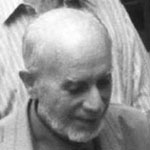
Articles by Maurice Gloton
Alan Godlas

https://islam.uga.edu/profbio.html [/]
Articles by Alan Godlas
Molla Fanari and the Misbah al-Uns: The Commentator and the Perfect Man (PDF)
Denis Gril

https://www.saphirnews.com/Denis-Gril-Oser-le-savoir-et-la-foi_a25902.html [/]
Articles by Denis Gril
Love Letters to the Kaaba – A Presentation of Ibn Arabi’s Taj al-Rasa’il
The Kitab al-inbah of Abdallāh Badr al-Habashi | Introduction
The Kitab al-inbah of Abdallah Badr al-Habashi | Translation
“There Is No Word in the World that Does Not Indicate His Praise”
«Il n’est de mot dans l’univers qui n’indique Sa louange» (French)
The Journey through the Circles of Inner Being According to Ibn Arabi’s Mawaqi al–nujum
Adab and Revelation – One of the Foundations of the Hermeneutics of Ibn Arabi
Adab och uppenbarelse – eller en av grundvalarna för hermeneutiken hos Ibn Arabi (Swedish)
Commentaries on the Fatiha and Experience of the Being According to Ibn Arabi
The Enigma of the Shajara al-numaniyya fī al-dawla al-Uthmaniyya, Attributed to Ibn Arabi
Hadith in the Work of Ibn Arabi: The Uninterrupted Chain of Prophecy
Ibn Arabi in Egypt – The Speech of Things
Jesus, Mary and the Book According to Ibn Arabi
The Quranic Figure of Pharaoh According to the Interpretation of Ibn Arabi
Michel Chodkiewicz (1929-2020) - A Legacy
Podcasts by Denis Gril
“And He taught Adam all the Names”: the Foundation of the Spiritual Caliphate
Souad Hakim

Among her published works is al-Mu'jam al-sufi : al-hikmat fi hudud al-kalimat (Beirut, 1981), a unique concordance of Sufi terminology, illustrated with many passages from Ibn 'Arabi's works.
Articles by Souad Hakim
Ibn Arabi’s Twofold Perception of Woman – Woman as Human Being and Cosmic Principle
Unity of Being in Ibn Arabi – A Humanist Perspective
The Spirit and the Son of the Spirit: A Reading of Jesus (Isa) According to Ibn Arabi
The Paths to God: A Journey through the Spiritual Experience of Ibn Arabi and His Writings
Jaakko Hämeen-Anttila

He has written many popular books on Islamic culture, history and poetry. Hämeen-Anttila also translated the Quran into Finnish in the year 1995 and the Epic of Gilgamesh in the year 2000. He serves on the editorial board of the Journal of Arabic and Islamic Studies.
https://www.ed.ac.uk/profile/jaakko-hameen-anttila [/]
Articles by Jaakko Hämeen-Anttila
The Immutable Entities and Time
Podcasts by Jaakko Hämeen-Anttila
Rabia Terri Harris

https://www.wisemuslimwomen.org/muslim-woman/rabia-terri-harris-2/ [/]
Articles by Rabia Terri Harris
On Majesty and Beauty – The Kitab al-Jalal wa-l Jamal of Muhyiddin Ibn Arabi (PDF)
Stephen Hirtenstein

He read History at King’s College, Cambridge, and then studied at the Beshara School of Intensive Esoteric Education in Gloucestershire and Scotland. After a teaching career, he began writing and giving talks on Ibn Arabi’s thought at conferences across the world.
In addition to lecturing and writing, he organises and leads tours "in the footsteps of Ibn Arabi".
He currently works as a Senior Editor for the Institute of Ismaili Studies in London, and lives near Oxford.
Articles by Stephen Hirtenstein
The Image of Guidance – Sadr al-Din al-Qunawi as Hadith Commentator
“I entrust to you a bequest” – Ibn Sawdakin | Translation
Muhyiddin Ibn Arabi: The Treasure of Compassion
Selected Major Works of Ibn Arabi
Seleção das maiores obras de Ibn Arabi (Portuguese)
De Volta a Deus (Ibn Arabī 1182–1184) – Capítulo 5 de O Compassivo Ilimitado (Portuguese)
Some Preliminary Notes on al-Diwan al-kabir
The Brotherhood of Milk – Perspectives of Knowledge in the Adamic Clay
“O Marvel!” – A Paradigm Shift towards Integration
The Mystic’s Kaaba – The Cubic Wisdom of the Heart According to Ibn Arabi
Malatyan Soil, Akbarian Fruit: From Ibn Arabi to Nyazi Misri
Sadr al-Din al-Qunawi’s al-Nusus | with Hülya Küçük
Names and Titles of Ibn [al-]‘Arabi
Kitâb al-fâna' fi-l mushâhadah, by Ibn 'Arabi | with Layla Shamash
The Great Dīwān and its offspring: The collection and dispersion of Ibn 'Arabī's poetry | with Julian Cook
The library list of Ṣadr al-Dīn al-Qūnawī | with Julian Cook
Malik MS 4263: A Manuscript Case-study
Translations by Stephen Hirtenstein
Kitâb al-fâna’ fi-l mushâhadah by Ibn ‘Arabi
Podcasts and Videos by Stephen Hirtenstein
The Healer of Wounds: Interpreting Human Existence in the Light of Alchemy and Ascension
Reviving the Dead: Ibn Arabi as the Heir to Jesus
Introduction to the “Light & Knowledge” Conference
The Mystic’s Kaaba – The Wisdom of the Heart According to Ibn Arabi
“O Marvel!” – A Paradigm Shift towards Integration
Spiritual Life, Living Spirit – Ibn Arabi’s Meeting with Jesus and John
Victoria Rowe Holbrook

She is best known today for her translation of Orhan Pamuk’s novel The White Castle, which won the inaugural Independent Foreign Fiction Prize. Other translations include: Beauty And Love by Seyh Galip (2 vols.); East West Mimesis: Auerbach in Turkey by Kader Konuk; The Other by Ece Vahapoglu; The New Cultural Climate in Turkey: Living in a Shop Window by Nurdan Gurbilek; Listen: Commentary on the Spiritual Couplets of Mevlana Rumi by Kenan Rifai. Her own book The Unreadable Shores of Love: Turkish Modernity and Mystic Romance won the Turkish Studies Association M. Fuat Köprülü Book Prize.
(Source: Wikipedia 2020)
https://bilgi.academia.edu/VictoriaRoweHolbrook [/]
Articles by Victoria Rowe Holbrook
Ibn Arabi and Ottoman Dervish Traditions: The Melami Supra-Order | Part one
Ibn Arabi and Ottoman Dervish Traditions: The Melami Supra-Order | Part two
Katia Holmes

Podcasts by Katia Holmes
Emil Homerin

Homerin completed his Ph.D. at the University of Chicago (1987), and has lived and worked in Egypt for a number of years. Among his many publications are From Arab Poet to Muslim Saint (2nd revised edition, Cairo: American University Press, 2001), his anthology of translations, Ibn al-Farid: Sufi Verse & Saintly Life (Paulist Press, 2001), The Wine of Love and Life (Chicago, 2005) and several chapters on Islam in the volume The Religious Foundations of Western Civilization (Abingdon Press, 2006). His second book on Aisha al-Ba’uniyya, A Life in Praise of Love, was published in 2019.
http://www.sas.rochester.edu/rel/people/faculty/homerin_t/index.html [/]
Podcasts by Emil Homerin
Joined at the Crossroads: Ibn al-Farid and Ibn al-Arabi in the Islamic Mystical Tradition
Dom Sylvester Houédard

Articles by Dom Sylvester Houédard
Notes on the More Than Human saying: “Unless you know yourself you cannot know God”
Hany Ibrahim

Podcasts by Hany Ibrahim
Angela Jaffray

https://anqa.co.uk/publications/author/angela-jaffray [/]
Articles by Angela Jaffray
“Watered with One Water” – Ibn Arabi on the One and the Many
Podcasts and Videos by Angela Jaffray
Better Living Through Alchemy – Some Secrets of Spiritual Medicine
Worshipping in Three Dimensions: Emigrating in God's Vast Earth
Ibn Arabi on Himmah: The Spiritual Power of the Strong-souled Individual
Bahram Jassemi
Bahram Jassemi was born in Iran. He obtained his doctorate in Pharmacy at the University of
Tehran. He emigrated to Germany in 1980, where he published many poems and articles on
Persian literature, and later on mysticism. His play in German called “Werden” (Becoming) was published in 2002, and 2003 saw the publication of the first volume in a series on Sufism, Der Weg Der Liebe - Sufismus, Die Mystik Des Islam. In 2008 he was co-author of New Humanism: On the Path to a Humane Social System with Dr Mohammed Djassemi. The book was also published in German.
Articles by Bahram Jassemi
Ghasem Kakaie
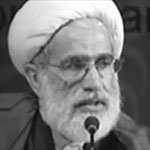
Articles by Ghasem Kakaie
Interreligous Dialogue: Ibn Arabi and Meister Eckhart
Podcasts by Ghasem Kakaie
Interreligous Dialogue: Islam and Christianity, Ibn Arabi and Meister Eckhart
Ibrahim Kalin

His book on Mulla Sadra’s theory of knowledge, entitled Knowledge in Later Islamic Philosophy: Mulla Sadra on the Unification of the Intellect and the Intelligible, appeared in 2010.
Podcasts by Ibrahim Kalin
Fatemeh Keshavarz

Podcasts by Fatemeh Keshavarz
How Sweetly with a Kiss Is the Speech Interrupted: The Dynamism of Silence in Rumi’s Lyric Poetry
Recitation of Rumi’s Poetry in Persian and English
Interview: Ibn Arabi and Rumi: Teachings for the Modern World
Atif Khalil

Podcasts by Atif Khalil
Ibn al-Arabi on The Grammar of Gratitude and the Shirk of Shukr
Pasha M. Kahn

https://www.mcgill.ca/islamicstudies/people-0/faculty-members/pasha-m-khan [/]
Articles by Pasha M. Khan
Nothing But Animals – The Hierarchy of Creatures in the Ringstones of Wisdom
Alexander Knysh

https://lsa.umich.edu/middleeast/people/faculty/alknysh.html [/]
Articles by Alexander Knysh
The Realms of Responsibility in Ibn Arabi’s al-Futuhat al-Makkiyya
Podcasts by Alexander Knysh
Mahmud Erol Kiliç

Together with Dr. Abdurrahim Alkış Dr Kiliç published Muhyiddin İbn Arabi, Fusûsu’l-hikem, Tahkik ve Tıpkıbasım in 2016 (Litera Yay., İstanbul), a critical edition of the Fusus al-Hikam, based on the manuscript copied by Saduddin Qunawi, which is the oldest known manuscript of the Fusus, including a sama' by Ibn 'Arabi. The book also has a facsimile copy of that manuscript.
Podcasts and Videos by Mahmud Erol Kiliç
“We Sucked Milk From Two Mothers” – Ibn Arabi and Rumi as Co-founders of Ottoman Sufi Thought
Hülya Küçük

Her publications include The Roles of the Bektashis in Turkey’s National Struggle, (Leiden, 2002: Brill); Bektashis in the War of Independence, (Istanbul, 2003: Book); Sultan Veled and Maarif, (Istanbul, 2005: Konya Metropolitan Municipality); Introduction to the History of Sufism Outlined, Revised and Expanded 4th edition (Istanbul, 2015: Ensar); Introduction to Sufism, 2nd Edition (Istanbul, 2015: Ensar / DEM); The Extended Path from Ibn al-Arabi to Women Parents (Istanbul: Nefes, 2016) and Sufism and Medicine. She is the author of many books and articles in Turkey and abroad.
Articles by Hülya Küçük
Zahra’ Langhi
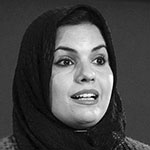
Articles by Zahra’ Langhi
Ajami Mysteries of Sitt Ajam bint al-Nafis: A Feminine Hermeneutic of an Heiress of Ibn Arabi
Podcasts by Zahra’ Langhi
“And My Mercy Encompasses All”: Peace in light of Akbarian metaphysics of Compassion
Todd Lawson

Podcasts and Videos by Todd Lawson
Water, Light, Knowledge: Towards an Ecology of Imagination
The Mark of Friendship and the Structure of Sanctity in the Teachings of Ibn Arabi
Selected Readings from the Poetry of Ibn Arabi
Being Human According to the Quran
Consciousness, Imagination and Gratitude: The Inexhaustible Sources of the Self
Gracia López Anguita

Articles by Gracia López Anguita
On the Inner Knowledge of Spirits Made of an Igneous Mixture: Chapter 9 of the Futuhat al-Makkiyya
Videos by Gracia López Anguita
Pierre Lory

Articles by Pierre Lory
The Symbolism of Letters and Language in the Work of Ibn Arabi
Podcasts by Pierre Lory
Animal world and Perfect Man: Ibn Arabi and the metaphysics of ecology
Olga Louchakova-Schwartz

https://www.scu.edu/jst/about/people-of-jst/faculty/olga-louchakova-schwartz/ [/]
Podcasts by Olga Louchakova-Schwartz
Shihab al-Din Suhrawardi and Muhyi al-Din Ibn Arabi: A Hitherto Neglected Comparison
Mediating Intimacy: Essential Ibn Arabi for Education and Psychotherapy
Denis E. McAuley
Denis McCauley gained his DPhil in Oriental Studies from Oxford University in 2008. His doctoral thesis was published by Oxford University Press as Ibn `Arabī's Mystical Poetics (2012).
Articles by Denis E. McAuley
Some Notes on the Manuscript Veliyuddin 51 | with Jane Clark
Samir Mahmoud

http://www.mizan.com.au/team-members/dr-samir-mahmoud/ [/]
Podcasts by Samir Mahmoud
Husam al-Mallak
Dr Husam al-Malik is currently a Senior Teaching Fellow in Islamic Studies at SOAS (School of African and Oriental Studies), London.
Podcasts by Husam al-Mallak
Ibn al-Arabi and the Postmodern Philosophers: The Return to God After the Death of God
Zachary Markwith

Podcasts and Videos by Zachary Markwith
Jesus and Christic Sanctity in Ibn Arabi and Early Islamic Spirituality
John Mercer

Podcasts by John Mercer
James Winston Morris

His publications include: Openings:From the Qur’an to the Islamic Humanities (forthcoming); Approaching Ibn ‘Arabi : Foundations, Contexts, Interpretations (forthcoming); Ma‘rifat ar-Rūh in Nur Ali Elahi's Knowing the Spirit (2007), and The Reflective Heart: Discovering Spiritual Intelligence in Ibn ‘Arabī’s "Meccan Illuminations"(2005).
Articles by James W. Morris
Introduction to The Meccan Revelations
Ibn ‘Arabi’s “Short Course” on Love
How to Study the Futuhat: Ibn Arabi’s Own Advice
Hur Man Studerar Futuhat: Ibn Arabis Egna Råd (Swedish)
Ibn Arabi: Spiritual Practice and Other Translations – Overview of the ten following articles:
Some Dreams of Ibn Arabi (PDF)
Introducing Ibn Arabi’s “Book of Spiritual Advice” (PDF)
“Book of the Quintessence of What is Indispensable for the Spiritual Seeker” (PDF)
Ibn Arabi on the Barzakh – Chapter 63 of the Futuhat (PDF)
The Spiritual Ascension: Ibn Arabi and the miraj – Chapter 367 of the Futuhat (PDF)
The Mahdi and His Helpers – Chapter 366 of the Futuhat (PDF)
Ibn Arabi’s ‘Esotericism’: The Problem of Spiritual Authority (PDF)
Communication and Spiritual Pedagogy: Methods of Investigation (tahqiq) (PDF)
Rhetoric & Realisation in Ibn Arabi: How Can We Communicate Meanings Today? (PDF)
Listening for God: Prayer and the Heart in the Futuhat | Part 1
Listening for God: Prayer and the Heart in the Futuhat | Part 2
Listening for God: Prayer and the Heart in the Futuhat | Part 3
Listening for God: Prayer and the Heart in the Futuhat | Part 4
Divine Calling, Human Response – Scripture and Realization in the Meccan Illuminations | Part 1
Divine Calling, Human Response – Scripture and Realization in the Meccan Illuminations | Part 2
Opening the Heart: Ibn Arabi on Suffering, Compassion and Atonement
Ibn Arabi and his Interpreters – Overview of 28 articles and reviews in this section
Ibn ‘Arabi and his Interpreters I – Four overviews, description of the following:
Ibn Arabi; in the “Far West” (PDF)
Except His Face: The Political and Aesthetic Dimensions of Ibn Arabi’s Legacy (PDF)
Situating Islamic ‘Mysticism’ (PDF)
Ibn Arabi and His Interpreters — Grouping I:
Overviews
Ibn Arabi; in the “Far West” (PDF)
Except His Face: The Political and Aesthetic Dimensions of Ibn Arabi’s Legacy (PDF)
Situating Islamic ‘Mysticism’ (PDF)
“Ibn Arabi and His Interpreters”, JAOS article 1986 (PDF) | Part 1 | Part 2 | Part 3 | Part 1 (HTML)
Theophany or “Pantheism” – The Importance of Balyani’s Risalat al-Ahadiya
The Continuing Relevance of Qaysari’s Thought: Divine Imagination and the Foundation of Natural Spirituality
Review: La destinée de l’homme selon Avicenne: Le retour à Dieu (maad) et l’imagination by Jean Michot
Review: Kitab al-inbah ‘ala Tariq Allah de ‘Abdallah Badr al-Habashi
Review: La Risala de Safi al-Din ibn Abi l-Mansur ibn Zafir
Review: Manjhan, Madhumalati: An Indian Sufi Romance
Review: Mirror of the Intellect: Essays on Traditional Science and Sacred Art
An Arab “Machiavelli”? – Rhetoric, Philosophy and Politics in Ibn Khaldun’s Critique of “Sufism”
Review: Islamic Mysticism Contested: Thirteen Centuries of Controversies and Polemics
Review: Ibn Arabi and the Later Islamic Tradition: The Making of a Polemical Image in Medieval Islam
Review: Theodicy in Islamic Thought: The Dispute over al-Ghazali’s “Best of All Possible Worlds”
Ibn Masarra: A Reconsideration of the Primary Sources (PDF)
Podcasts and Videos by James W. Morris
Beyond Belief: Ibn ‘Arabi on the Perennial Challenges of Realization
“As for your Lord’s blessings, recount them!”: Ibn ‘Arabi’s Storytelling and Spiritual Communication
Becoming Real: Realization and Revelation in Rumi and Ibn Arabi
Whose calling, whose response? Ibn 'Arabi on Divine and Human Responsiveness
Opening the heart in the Futuhat
Kazuyo Murata

Podcasts by Kazuyo Murata
Perception of Beauty and Ugliness According to Ruzbihan Baqli Shirazi
Sachiko Murata
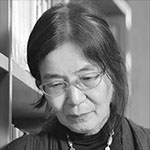
Her publications include The Sage Learning of Liu Zhi: Islamic Thought in Confucian Terms (2009), The Vision of Islam (with William Chittick, 2006), Chinese Gleams of Sufi Light (with William Chittick and , 2000), and The Tao of Islam: A Sourcebook on Gender Relationships in Islamic Thought (1992).
Articles by Sachiko Murata
The Unity of Being in Liu Chih’s “Islamic Neoconfucianism”
Podcasts by Sachiko Murata
Kautsar Azhari Noer

Articles by Kautsar Azhari Noer
Martin Notcutt

Videos by Martin Notcutt
Oludamini Ogunnaike
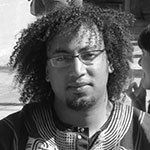
https://religiousstudies.as.virginia.edu/faculty/profile/oo4qw [/]
Podcasts by Oludamini Ogunnaike
Luca Patrizi

Videos by Luca Patrizi
Thus Spoke Adam: The Suryāniyya Language in Islamic Esotericism’
George Pattison

https://www.gla.ac.uk/schools/critical/staff/georgepattison/#publications,books [/]
Podcasts by George Pattison
Shahram Pazouki

Podcasts by Shahram Pazouki
Michele Petrone
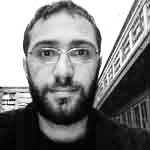
Videos by Michele Petrone
The Dot and the Line: Akbarian views on time and the instant
Bernd Radtke
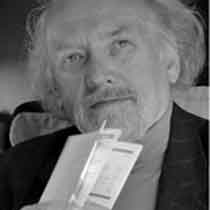
His publications include The Concept of Sainthood in Early Islamic Mysticism: Two Works by Al-Hakim al-Tirmidhi (1996) and Islamic Mysticism Contested: Thirteen Centuries of Controversies and Polemics (1999). New Critical Essays: On the Present State and Future Tasks of the Study of Sufism (2005) includes a translation of Ibn 'Arabî's Risalat al-Anwâr.
An article by Bernd Radkte entitled "The Ascent to God and the Return from Him in Islamic Mysticism", which is an analysis of the Risalat al-Anwâr, can be downloaded here: https://iphras.ru/uplfile/smirnov/ishraq/3/8radtke.pdf [/]
Articles by Bernd Radtke
Yafiah Katherine Randall
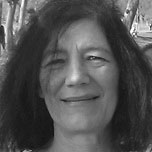
https://winchester.academia.edu/YafiahKatherineRandall [/]
Podcasts by Yafiah Katherine Randall
Bulent Rauf

Bulent Rauf devoted many years of his life to the establishing of a body of knowledge based on an understanding of the absolute unity of existence. He was instrumental in the establishment of the Beshara [/] School of Intensive Esoteric Education at the Chisholme Institute [/] in the Scottish Borders. He was first President of the Muhyiddin Ibn Arabi Society.
His chief literary work was the complete rendering into English of Ibn Arabi’s Fusus al-hikam (“Settings of Wisdom”), incorporating the Turkish commentary attributed to Ismail Hakki Bursevi. He also translated into English (from Turkish), Kernel of the Kernel, by Ismail Hakki Bursevi (1981), and from French, Mystical Astrology According to Ibn 'Arabi by Titus Burckhardt (1977).
http://www.bulentrauf.org/ [/]
Articles by Bulent Rauf
Extract from the Fusus al-hikam
Ringu Tulku Rinpoche

Podcasts by Ringu Tulku Rinpoche
Spiritual and Material: Appearance is the Unsurpassed Protection
Frithiof Rundgren

Articles by Frithiof Rundgren
On the Dignity of Ma: Soem Aspects of the Unity of Being in Ibn Arabi
Mohammed Rustom

http://www.mohammedrustom.com/ [/]
Articles by Mohammed Rustom
Ibn Arabi on Proximity and Distance – Chapters 260 and 261 of the Futuhat
Podcasts and Videos by Mohammed Rustom
Cemalnur Sargut

Podcasts by Cemalnur Sargut
Giuseppe Scattolin
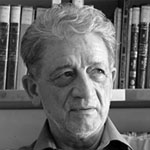
Articles by Giuseppe Scattolin
Michael Sells

Articles by Michael Sells
Ibn Arabi’s Poem 18 (Qif bi l-Manazil) from the Translation of Desires
Selections from Ibn Arabi’s Tarjuman al-ashwaq (Translation of Desires)
Podcasts and Videos by Michael Sells
Bewildered – A New Translation of Ibn Arabi’s Tarjuman Poems
Selected Readings from the Poetry of Ibn Arabi
Life in Ibn Arabi’s “Ringsetting of Prophecy in the Word of Jesus”
Ibn Arabi's Lyric Mysticism and the Persian-Arabic Love Affair
The Poetry of Ibn Arabi – Recitations from the Tarjuman al-ashwaq
Reza Shah-Kazemi
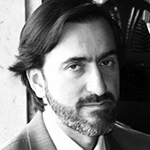
https://iis.ac.uk/people/dr-reza-shah-kazemi [/]
Articles by Reza Shah-Kazemi
Jesus in the Quran: Selfhood and Compassion – An Akbari Perspective (Part 1)
Jesus in the Quran: Selfhood and Compassion – An Akbari Perspective (Part 2)
Sa’diyya Shaikh

http://www.religion.uct.ac.za/religion/staff/academicstaff/sadiyyashaikh [/]
Podcasts and Videos by Sa’diyya Shaikh
Ibn Arabi and Reimagining Gender
Intimate Echoes of Self: Gender & Sexuality in Ibn Arabi’s Cosmology
Layla Shamash
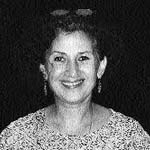
Articles by Layla Shamash
Kitâb al-fâna' fi-l mushâhadah, by Ibn 'Arabi | with stephen Hirtenstein
Stefan Sperl

Podcasts and Videos by Stefan Sperl
Ibn Arabi’s “Doves of the Arak Tree” and its Arabian, Quranic and Plotinian Antecedents
Introduction to the 2017 UK Symposium “Ibn Arabi and the Philosophers”
Ahmad Sukkar

https://mit.academia.edu/AhmadSukkar [/]
Podcasts and Videos by Ahmad Sukkar
Sara Sviri

Podcasts and Videos by Sara Sviri
Beyond the Opposites: Identities and How to Survive Them in Light of the Light of Oneness
From the One to the One-another. Mystical ethics in Ibn Arabi and in the Sufi Tradition
Mustafa Tahrali
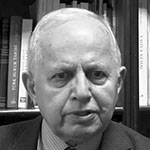
Articles by Mustafa Tahrali
A General Outline of the Influence of Ibn Arabi on the Ottoman Era
Cecilia Twinch

She now lives in Oxford and is a Senior Research Fellow of the Muhyiddin Ibn Arabi Society. Besides working as a teacher, translator and editor, she has written numerous articles and has lectured on Ibn Arabi and mysticism worldwide. She is particularly interested in bringing alive the universal relevance of Ibn Arabi’s ideas in the world today.
In addition to Contemplation of the Holy Mysteries, her publications include Know Yourself: An explanation of the oneness of being (translated from Arabic manuscripts attributed to Ibn Arabi and to Awhad al-din Balyani).
Articles by Cecilia Twinch
Muhyiddin Ibn Arabi: The Beauty of Oneness Witnessed in the Emptiness of the Heart
Created for Compassion: Ibn Arabi’s Work on Dhu-l-Nun the Egyptian
Podcasts and Videos by Cecilia Twinch
Arriving at the Point of Departure
Richard Twinch

Podcasts and Videos by Richard Twinch
Introduction to the 2017 UK Symposium “Ibn Arabi and the Philosophers”
Paolo Urizzi

Videos by Paolo Urizzi
Gregory Vandamme
Podcasts by Gregory Vandamme
Nargis Virani
 Nargis Virani is Assistant Professor of Arabic at The New School, University Liberal Studies in New York. She received her PhD in 1999 in Arabic and Islamic Studies from Harvard University. She studied the Quran with the Shaykh of al-Azhar Mosque in Cairo and holds a shahadah (certificate) and an ijazah (permission to teach the Quran). Her doctoral dissertation, entitled I am the Nightingale of the Merciful Macaronic or Upside Down?, analyzed the mulammaat, the mixed-language poems, in Rumi’s Diwan and she is currently converting this into a book which will also include a translation into English of all of Rumi’s multilingual verses in Arabic, Persian, Turkish, Greek and Armenian. Dr Virani’s second book project is tentatively entitled Quran in Muslim Literary Memory.
Nargis Virani is Assistant Professor of Arabic at The New School, University Liberal Studies in New York. She received her PhD in 1999 in Arabic and Islamic Studies from Harvard University. She studied the Quran with the Shaykh of al-Azhar Mosque in Cairo and holds a shahadah (certificate) and an ijazah (permission to teach the Quran). Her doctoral dissertation, entitled I am the Nightingale of the Merciful Macaronic or Upside Down?, analyzed the mulammaat, the mixed-language poems, in Rumi’s Diwan and she is currently converting this into a book which will also include a translation into English of all of Rumi’s multilingual verses in Arabic, Persian, Turkish, Greek and Armenian. Dr Virani’s second book project is tentatively entitled Quran in Muslim Literary Memory.
Podcasts by Nargis Virani
“A Donkey’s Tail With Angel’s Wings”: Being Fully Human According to Rumi
Itzchak Weismann

Articles by Itzchak Weismann
God and the Perfect Man in the Experience of ‘Abd al-Qadir al-Jaza’iri
Eric Winkel

Having studied Ibn Arabi’s Futuhat al-Makkiyya for over twenty-five years, Eric Winkel is now in the midst of an eleven-year project to produce the first complete translation of this work. For more information see links below to The Futūḥāt Project
The Futūḥāt Project
Articles by Eric Winkel
Abu Madyan’s Child, Per Singular Momenta and the Skull Suture: Understanding Ibn Arabi’s Futuhat
Understanding, and Translating, the Futuhat al-Makkiyya
Ibn Arabi’s fiqh: Three Cases from the Futuhat
Time Is Not Real: Time in Ibn Arabi, and from Parmenides (and Heraclitus) to Julian Barbour
Podcasts by Eric Winkel
Abu Madyan’s Child, Per Singular Momenta and the Skull Suture: Understanding Ibn Arabi’s Futuhat
Osman Yahya
Osman Yahya (1919-1997) was born in Syria. His university education was at al-Azhar University in Cairo, and the Sorbonne and le Centre national de la recherche scientifique in Paris. He was in contact with and studied under such luminary figures as Georges Anawati, Louis Massignon and Henry Corbin. He stayed for many years in Cairo at the Institut Dominicain d' Études Orientales, while he worked on the first critical edition of the Futūḥāt. He died on 4th November 1997 in Aleppo, where he spent the last years of his life. More detailed information is provided in this article by Bakri Aladdin on jstor.org "In memoriam: Osman Yahia (1919/1997)".
Osman Yahya made two major contributions to modern studies of Ibn 'Arabi:
- Histoire et classification de l'œuvre d'Ibn Arabi, Institut Français de Damas, Damascus, 1964: A two-volume catalogue of works, manuscripts and printed works relating to Ibn ‘Arabi. Although there had been previous bibliographies, the scale and detail of this study made it the foundation for any future bibliographic work, and for 50 years to only reference work.
- al-Futūḥāt al-makkīya, al-Hai'a al-Miṣrīya, Cairo (14 volumes, 1972-1992). A critical edition of the Futūḥāt planned as thirty-seven volumes. The first fourteen volumes were prepared and published in Cairo until the Egyptian Government withdrew its support for the project.
Alongside his research for the Histoire et classification, Osman Yahya established the first edition of Hakim Tirmidhi's Khatm al-awliya (with a French translation), as well as a critical edition of Ibn 'Arabi' s Kitab al-tajaliyat (Book of Theophanies). A passage from the Kitab al-tajaliyat has become very well known beyond the realm of scholarly texts after it was quoted by Henry Corbin in Creative Imagination in the Sufism of Ibn ‘Arabi - “Listen, O dearly beloved!”. In a note at the end that passage, Corbin says, “The French translation was established by Mr. ‘Osman Yahya, my pupil and now my co-worker at the École des Haute Études... I have changed only a few words, and to simplify the typography, modified his disposition of the lines.”
Articles by Osman Yahya
Alison Yiangou
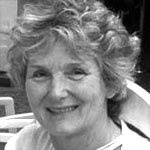
Articles by Alison Yiangou
There’s No Time Like the Present!
Podcasts by Alison Yiangou
Nikos Yiangou

Podcasts by Nikos Yiangou
Ibn Arabi and Rumi: Teachings for the Modern World
Peter Yiangou

Podcasts by Peter Yiangou
Peter Young

He was principal of the school from 1984–2015, devoting his life to serving the school and its students. Recently he led the development of new study and retreat courses in both self-enquiry and self-knowledge (“Discovering Unity”), and he continues to lecture and supervise courses worldwide. More recently, he has also developed his skills for working with wood, and now offers courses in Greenwood Chairmaking [/].
Articles by Peter Young
Mohamed Haj Yousef

https://faculty.uaeu.ac.ae/mhajyousef/ [/]
Articles by Mohemed Haj Yousef
Ibn Arabi: the Treasury of Absolute Mercy
Podcasts by Mohemed Haj Yousef
Ibn Arabi’s View of the Cosmos
Interview on “Science, Health and Healing” Radio Show, Pacifica Radio
Heba Youssry

Podcasts and Videos by Heba Youssry
A Journey Through Wasl and Fasl: Women and Sexual Relations in Ibn Arabi’s Thought
Cyrus Ali Zargar

Podcasts by Cyrus Ali Zargar
Bird from the Garden of Meanings: Soul and Speech in Ibn Arabi’s Reading of Jesus
The Poetics of Shuhud: Experiencing and Expressing Human-Divine Beauty


